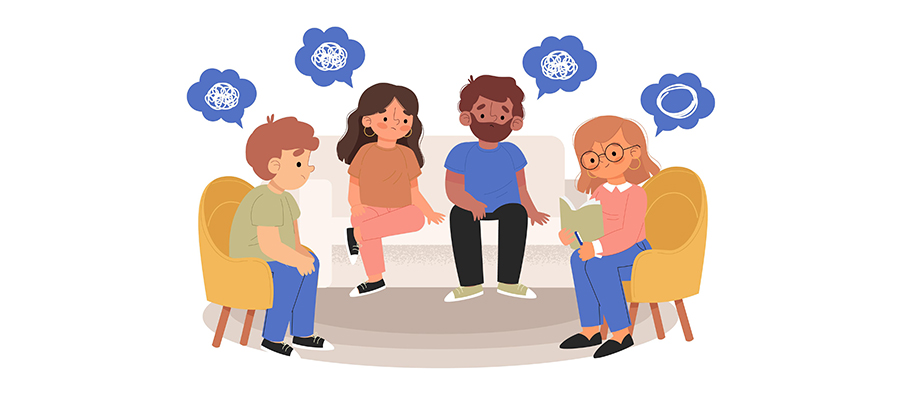Mental health in India is often whispered about in hushed tones—if it’s spoken about at all. Many still believe that anxiety is just "overthinking," depression is "laziness," and therapy is only for "pagal log" (crazy people). This stigma keeps millions suffering in silence, afraid of judgment, shame, or being labeled as "weak."
But what if we could change the conversation? What if talking about mental health became as normal as discussing physical health?
Why Does the Stigma Exist?
In India, mental health struggles are often dismissed because:
- "Log kya kahenge?" (What will people say?) – Fear of social judgment.
- "Yeh sab dimaag ki kamzori hai" (It’s all in your head) – A lack of awareness about mental health as a real health issue.
- "Bhagwan pe bharosa rakho" (Just have faith in God) – Spiritual bypassing instead of seeking professional help.
The truth? Mental health struggles are just like diabetes or high blood pressure—they’re medical conditions, not personal failures.
How Can We Talk About Mental Health Openly? (Practical Strategies for Indians)
1. Start with Small, Relatable Conversations
Instead of diving into heavy terms like "depression" or "PTSD," use everyday language:
Metaphor: "Just like a fever tells us our body is fighting something, anxiety is our mind’s way of saying it’s overwhelmed."
Example: "You know how phones need charging? Our brains also need rest and care."
2. Use Familiar Cultural References
Indians understand stories and metaphors well. Use examples from Bollywood, cricket, or mythology:
"Even heroes like Dhoni take breaks to recharge—why can’t we?"
"In the Mahabharata, Arjuna had anxiety before the war—Krishna didn’t shame him, he guided him."
3. Normalize Therapy Like a Doctor’s Visit
"If your stomach hurts, you see a doctor. If your mind feels heavy, why not see a therapist?"
"Therapy is like a gym for emotions—it strengthens your mental fitness."
4. Share Real Stories (Without Breaking Confidentiality)
When people hear others like them struggling, they feel less alone.
"A successful CEO I worked with thought therapy was ‘weak’—until it saved his career."
"A mother thought her son was just ‘lazy’—turns out, he had depression."
5. Respond to Stigma with Facts, Not Frustration
When someone says, "It’s all in your head," respond gently:
"Yes, just like a heart attack is in the heart—that’s why we treat it."
"If your leg was broken, would you ignore it? Mental pain also needs healing."
6. Encourage Small Steps to Seek Help
Many fear therapy because it feels "too serious." Suggest alternatives first:
- "Start with talking to a friend."
- "Try journaling—write down your thoughts like a WhatsApp status you never send."
- "Even 5 minutes of deep breathing can reset your mind."
Change Begins with Us
Stigma doesn’t disappear overnight—but every open conversation chips away at it. Whether you’re a parent, friend, or colleague, your words can make someone feel seen instead of ashamed.
So, let’s start today. The next time someone says, "I’ve been feeling low lately," don’t dismiss them. Just say: "I hear you. Let’s talk."
Because sometimes, the bravest thing a person can do is say, "I’m not okay." And the kindest thing we can do is listen.

